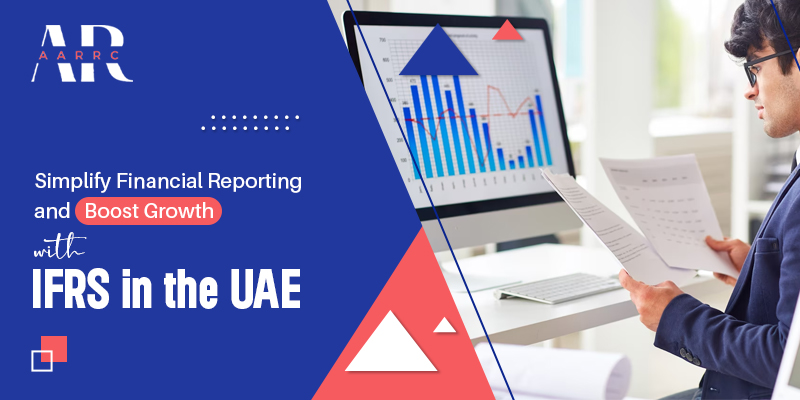In an increasingly globalized business environment, uniformity and transparency in financial reporting have never been more critical. That’s where the International Financial Reporting Standards (IFRF) come in. As a set of international accounting standards developed by the International Accounting Standards Board (IASB), IFRS provides a common global language for business affairs, enabling company accounts to be understandable and comparable across international boundaries.
In the United Arab Emirates, the adoption of IFRS is no longer a choice but a necessity, an essential ingredient for economic success and sustainability. Over the years, the UAE has shown commitment to adopting globally accepted accounting practices, with IFRS at the forefront. Furthermore, accurate financial reporting is crucial for businesses, especially in the ever-evolving landscape of the United Arab Emirates (UAE). In this article, we will explore the advantages of adopting IFRS and how it can benefit businesses in the UAE, particularly in light of the recent incorporation of corporate tax. Post having an understanding, you can connect with our team at AARRC to avail yourself of the best IFRS advisory services in UAE
Why Does IFRS Matter in the UAE?
From public and private companies to banks, insurance companies, and free zone entities, all entities in the UAE are required to prepare their financial statements according to IFRS. Here’s a closer look at the adoption and implications of IFRS across different sectors:
- Public and listed companies: Companies listed on the UAE’s financial markets, including the Dubai Financial Market (DFM) and Abu Dhabi Securities Exchange (ADX), are mandated to prepare their financial statements as per IFRS. This ensures transparency, consistency, and comparability of financial information, fostering investor confidence and promoting market efficiency.
- Private companies: In the UAE, private companies are also required to adhere to IFRS in their financial reporting. It provides a level playing field and facilitates an improved understanding of the financial health of these companies, especially for stakeholders located outside the UAE.
- Banks and financial institutions: These entities are regulated by the UAE Central Bank, which mandates adherence to IFRS in their financial reporting. This ensures uniformity in the reporting practices of these institutions, thereby enhancing the stability and resilience of the UAE’s financial system.
- Insurance companies: Regulated by the UAE Insurance Authority, insurance companies are required to align their financial statements with IFRS. This standardisation promotes clarity and comparability in the financial performance of these companies.
- Free Zone companies: Free zones like the Dubai International Financial Centre (DIFC) and Abu Dhabi Global Market (ADGM) require companies within their jurisdiction to comply with IFRS, further bolstering the UAE’s commitment to global financial reporting standards.
The Intersection of IFRS and Corporate Tax in the UAE
The introduction of corporate tax law in the UAE in 2023 has placed additional emphasis on the importance of IFRS. The law requires companies to prepare their financial statements using recognised accounting standards, and IFRS, being the most widely accepted standard, fits the bill perfectly. This harmonisation of financial reporting and taxation rules can lead to greater transparency, improve the quality of financial information, and facilitate better decision-making by stakeholders. It can also streamline the taxation process, as tax authorities will have access to more reliable and comparable financial information.
Moreover, it means that companies in the UAE need to ensure their accounting systems, internal controls, and financial reporting processes are robust and compliant with IFRS. It implies that companies must train their staff, or engage the services of professionals, to understand and apply IFRS correctly.
Looking Ahead
With the recent changes in the UAE’s corporate taxation landscape and the global trend towards accounting standardisation, the role of IFRS advisory services in the UAE’s business ecosystem is set to grow further. As a Dubai-based accounting and tax consultancy firm, AARRC is ideally placed. We are a leading accounting, taxation, and business setup firm in Dubai, UAE, which understands the importance of providing the best IFRS advisory services in UAE to ensure transparency and compliance. If you wish to learn more about our services or have any queries, please write to us or visit our website today!
Suggested Reading: Know The Profit Potential: Understanding Transfer Pricing In The UAE

